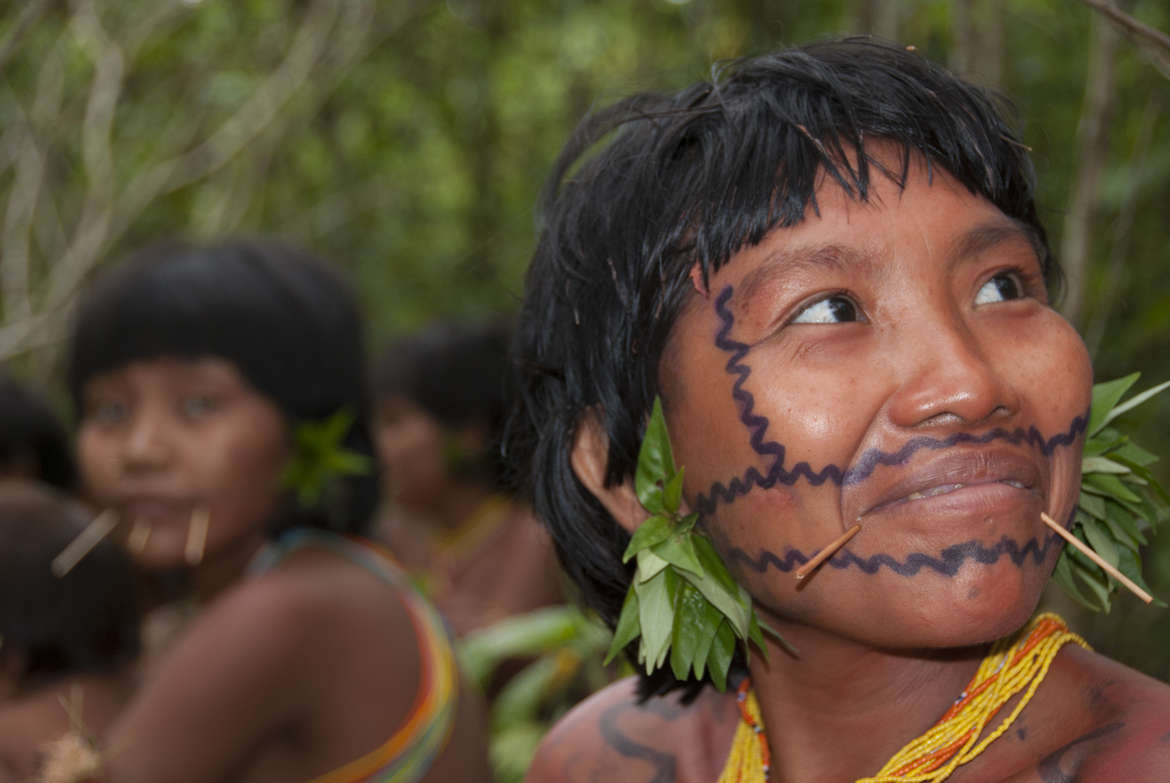Yanomami Women Lead the Charge Against Illegal Mining in the Amazon

In the heart of Brazil’s Amazon rainforest, a powerful movement is taking shape. Indigenous Yanomami women, once sidelined in their own communities, are now at the forefront of a battle to save their ancestral lands from the ravages of illegal gold mining.
Earlier this year, under the vibrant lights of Rio de Janeiro's Sambadrome stadium, Yanomami leaders like Davi Kopenawa joined forces with samba schools during Carnival to raise awareness about the crisis unfolding in their homeland. ‘Every day, we face death in our villages and attacks from illegal miners,’ Kopenawa told Al Jazeera.
Illegal gold mining is surging in the Yanomami Indigenous Territory, a mountainous and rainforested region in northern Brazil that spans the size of Portugal. The high price of gold on the global market has made illegal mining extremely lucrative, attracting thousands of wildcat miners, known as garimpeiros, seeking quick profits. During the presidency of Jair Bolsonaro from 2019-2022, environmental protections were relaxed and enforcement against illegal mining was limited, allowing the practice to flourish.
The invasion has led to widespread deforestation and a health crisis marked by malnutrition and disease. A report from Brazil's top public health institute in April revealed that 84 per cent of Yanomami tested had dangerous levels of mercury in their systems from contaminated rivers.
Yanomami women have risen to confront these challenges head-on. At the XIII Annual Meeting of Yanomami Women in 2022, more than 40 leaders penned a heartfelt letter to President Lula da Silva, urging immediate action to remove illegal miners from their land. ‘We are afraid and very concerned,’ they wrote. ‘We want to live in the forest alive and beautiful.’ At the follow-up meeting held in November 2023, they continued to raise concerns about the health of their children.
These women are also combining traditional knowledge with modern tools like drones, GPS mapping, and social media to document environmental damage and track illegal mining activities. Their efforts are challenging gender norms within their communities and empowering a new generation of female leaders.
Despite government initiatives to expel miners, including a task force deployed by President Lula, the situation remains dire due to the impact of mercury poisoning, which includes neurological effects, developmental risks, and cardiovascular concerns. A Reuters report indicates that while Brazil has ‘nearly cleared gold miners from the Yanomami reservation’, illegal miners have begun to return, exploiting gaps left by withdrawing military forces.
Still, the resilience of the Yanomami women continues to shine as a beacon of hope. Their activism has brought international attention to the plight of the Amazon and its Indigenous peoples, with some organizations urging the UK government and businesses to ensure they do not contribute to or profit from destructive mining practices.
The Yanomami women's fight serves as a critical reminder of the urgent need to protect Indigenous rights and preserve the Amazon rainforest. It’s a story of courage, innovation, and unwavering commitment to safeguarding their heritage for future generations.
— Eugene Yiga (@Eugene_Yiga)
📰 Read more about the nutrition crisis in Nature
👉 Follow Hutukara Yanomami to learn more about the community
✅ Sign up for regular updates from Survival International
✊ Get involved by joining Socio-environmental Institute (ISA)'s Telegraph channel
Like what you've read? Support us with a tip.

